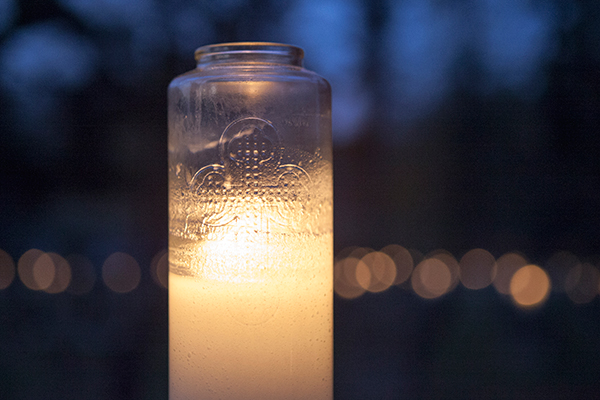Stay Awake
Fr. Adrian Burke, OSB
Thursday, December 12, 2019

"Vigils begin with the verse: 'Lord, open my lips and my mouth shall proclaim your praise.' (Ps 51:15)"
Rule of St. Benedict 9.1
After studying the Rule of St. Benedict for some years now, I find it evident that some of the most critical components of what we call "monastic spirituality" are those items that Benedict spends the most ink on. The liturgical service of vigils, which was referred to as the "night office," is one of them.
Benedict addresses the night office in chapters 8, 9, 10, 11 and 14. That’s a lot of ink in what is otherwise a very short rule!
In the ancient church, monks and nuns would rise long before dawn – in the middle of the night, really – to pray the psalms together. This was intended to cultivate in them a deep sense of awaiting the coming of the Lord – which is the spiritual thesis of the Church’s liturgical season of Advent, which we are presently observing. Perhaps the best source of inspiration for this spiritual disposition is given by Jesus himself in the three parables of Matthew 25.
Jesus first tells The Parable of the Ten Bridesmaids who are waiting for the return of the Bridegroom. It is the middle of the night when he returns, and five of the bridesmaids have their lamps lit and burning, ready to go out and greet him. The other five have run out of fuel for their lamps, and are thus unprepared.
In the second story, we have a property owner who entrusts his wealth to his servants so they can invest it and increase it while they wait for his return. The Parable of the Talents (vv. 14-30) shows that while we wait we must be busy “doing the Master’s work” of growing his wealth.
The final parable brings it all together: The Parable of the Sheep and the Goats (vv. 31-46). The “work we do” to build up the “wealth” of the Master, to be prepared and ready to greet the Son of Man when he comes in glory, is to care for the needy. To do that work, we have to stay awake to the demands of charity.
In the parable, Jesus identifies himself with the sick, the incarcerated, the hungry and thirsty, the naked and the stranger (immigrant/refugee). In order to see with clarity what we are meant to do for the least among us, and thus for Christ himself, we must stay awake – we must remain attentive and alert.
For monastics today, this attitude of waiting, watching and staying awake is practiced by getting up early each day to recite the psalms and listen attentively to the Word of God. By St. Benedict’s day, this had become the first of each day’s monastic “offices” (duties/works), the first in a daily round of liturgical prayer.
This, as a whole, can be understood as the primary spiritual means by which monks practice “being vigilant” for the coming Son of Man, as glorified at the end of time, but also as crucified in the continuous “coming among us” as our neighbor in need. Unless we learn to follow the crucified Christ, we cannot know or be known by Him when He comes in glory (Mt. 25:12) - thus Benedict spills much ink on the need for the monk to stay awake!